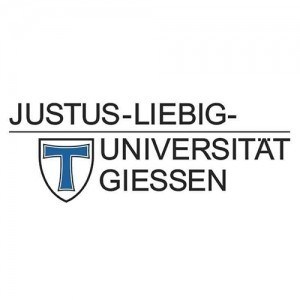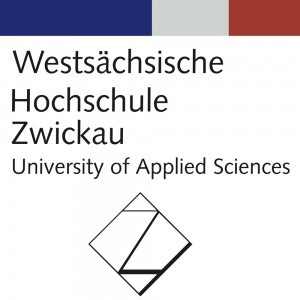European Risk Engineering and Management is a specialized postgraduate program offered by Steinbeis University that prepares students to effectively identify, assess, and mitigate risks within various industries and organizational contexts. This program is designed for professionals who aspire to develop advanced skills in risk analysis, safety management, and strategic decision-making, enabling them to ensure the resilience and sustainability of complex systems and processes. The curriculum combines theoretical foundations of risk theory with practical approaches to risk management, integrating contemporary methodologies such as quantitative risk assessment, crisis management, and compliance regulations. Students gain comprehensive knowledge of risk identification techniques, risk control measures, and emergency preparedness, equipping them to handle unpredictable challenges in sectors like manufacturing, energy, transportation, finance, and healthcare. The program emphasizes interdisciplinary learning, allowing participants to understand the interrelations between technical risks, human factors, and organizational policies. Through a combination of lectures, case studies, project work, and internships, students develop critical analytical skills and strategic thinking necessary for roles like risk manager, safety consultant, or crisis response coordinator. Upon completion, graduates are proficient in designing and implementing risk management frameworks that enhance organizational safety, reduce potential damages, and promote sustainable development. The program also offers international perspectives, reflecting the global nature of risk issues and fostering cross-cultural collaboration among students from diverse backgrounds. With flexible learning options, including blended formats, the program is tailored for working professionals seeking to advance their careers while balancing personal commitments. Enrolling in European Risk Engineering and Management at Steinbeis University equips students with the expertise needed to address modern risk challenges confidently and contribute to the safety and stability of organizations worldwide.
Educational organisation
In terms of curriculum and organisation, the Project Competence Concept - based on the dual-study system - goes way beyond conventional degrees.Part of the admission requirements is that students willing to enrol must have a project in a company or organisation. Young graduates can be supported by the Advanced Risk Technologies Institute to find a suitable company. Once the company is chosen, mentors are appointed from both SHB and from the company side. Thereupon the project is defined: the current situation is assessed, goals are detailed, and milestones and conditions are set. The study plan is then tailored, and the project work carried out along with more classical courses. Regular meetings between students and mentors as well as specific examination means (e.g. Transfer Papers) secure the proper execution of the project. This process reaches its culmination with the Master's thesis, a presentation of the key findings and innovative solutions of the project. As a general rule, students work for two years on a project in their companies and gather every four months for one month of courses.
The concept of integrated work on projects companies is set to facilitate integrated technology transfer, whereby the students gain new skills and create a professional network as part of their studies. They apply their newly acquired knowledge on practical everyday risk issues by supplying deliberate, pertinent and theoretically sound solutions to business problems.
Moreover, the programme draws on the extensive knowledge and skills of lecturers who are leading experts in their corresponding fields. The strength of their academic and practical background contributes to the high quality of the study programme.
Study abroad unit(s)
Possible within students' projectsInternships
No additional internship is necessary, as the programme is extra-occupational.Forms of assessment
The modular structure of the study programme includes exams for each module.The examinations may involve some of the following:
1. Written examination: up to 120 minutes written paper with four kinds of questions (true/false, multiple/single choice, short answers, essay/calculation, examples)
2. Oral examination: up to 60 minutes verbal discussion, optional presentation included
3. Presentation: up to 20 minutes with visuals
4. Publishable papers
5. Case studies
6. Project Study Paper: up to 20 pages, topic specified by the project and student's supervisors
7. Transfer Paper: one page, applying theory studied in a course onto the company's situation, to be written after each completed module
Course objectives
Held at Steinbeis University Berlin, the Master's programme in Risk Engineering and Management is designed for graduates and young professionals who wish to develop their knowledge, skills and competences in the following:- modelling, formulation, analysis and implementation of simulations for advanced risk problems as well as skills for understanding these approaches in the broader context of engineering science,
- an engineering and technical approach to the topics related to the safety of complex industrial systems as well as health and hazard-oriented risks,
- a broader and holistic approach for cultivating skills needed to successfully overcome general management challenges
- European and international regulations and standards along with communication principles
- new skills and the creation of a professional network as part of their studies
- knowledge on practical everyday risk issues by supplying deliberate, pertinent and theoretically sound solutions to business problems
Language requirements
Admission requires no special language skills that would go beyond the English B2 level of the Common European Framework of Reference for Languages.Academic requirements
- Bachelor's degree (180 ECTS) in the area of engineering, business administration, science or industrial engineering
- One year of professional experience
- Above average grade in previous studies (>2.4 in the German grading system)
- Good knowledge of English certified (B2 level or equivalent)
- Successfully passing the aptitude test
Enrolment fees
NoneCosts of living
Approx. 600 EUR per month / 20 EUR per day plus accommodation; can be covered by the sponsoring company or organisationJob opportunities
The Project Competence Concept, based on the German dual education system, is implemented in every degree offered by the Steinbeis University Berlin. In concrete terms, students willing to enrol must have a sponsoring company or organisation. (The Advanced Risk Technologies Institute can help young graduates to find a suitable company.)Arrival support
The Institute of Advanced Risk Technologies provides all information needed for obtaining a visa and checks the compliance of the students' documents with the formalities of the German authorities.Assistance with public transportation, such as a pick-up service from/to the airport, may be
provided.
Student will also receive a "survival guide".









